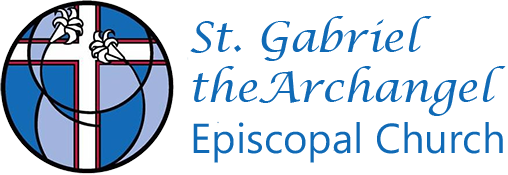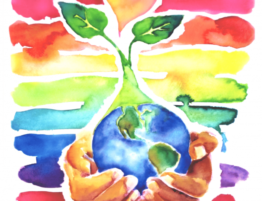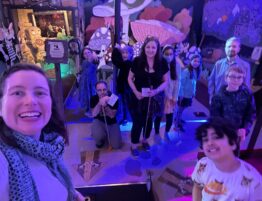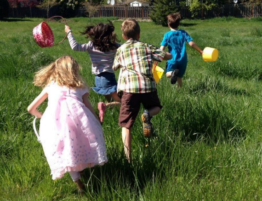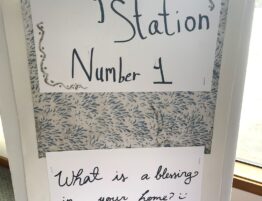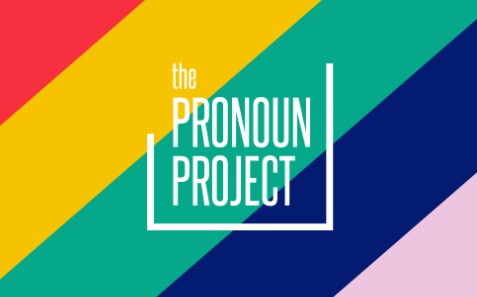
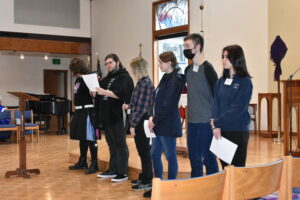 St. Gabriel the Archangel’s senior youth group of 8th-12th graders gave a testimonial presentation on Sunday, February 26th on “The Pronoun Project.” Our youth started this work in October of 2022 as part of the People’s Ecochallenge, a nationwide digital platform based in Portland that has groups take on challenges to encourage new habits to build a more sustainable and equitable world. Our sr. youth chose to concentrate on how asking and using someone’s correct pronouns are two of the most basic ways to show people love and respect. But it goes so much deeper than that. They are also providing pronoun stickers and new hand-beaded lanyards for members’ nametags.
St. Gabriel the Archangel’s senior youth group of 8th-12th graders gave a testimonial presentation on Sunday, February 26th on “The Pronoun Project.” Our youth started this work in October of 2022 as part of the People’s Ecochallenge, a nationwide digital platform based in Portland that has groups take on challenges to encourage new habits to build a more sustainable and equitable world. Our sr. youth chose to concentrate on how asking and using someone’s correct pronouns are two of the most basic ways to show people love and respect. But it goes so much deeper than that. They are also providing pronoun stickers and new hand-beaded lanyards for members’ nametags.
Here is what the group wrote together and presented along with youth leaders Abby Mulcahy and Gabbi Boyle, called “Neighbors”:
As Episcopals, we agree to a lot of things in our Baptismal Covenant. We say that we believe in God – the Father, Son, and Holy Spirit – and will follow the teachings of the apostles and prophets. We say that we will resist evil and proclaim the good news of the Gospel. But that’s not all. Towards the end of the Baptismal Covenant, we make two big promises.
First, we promise to seek and serve Christ in all persons, loving our neighbor as ourselves. What does that mean? Who counts as our neighbor?
A neighbor isn’t just someone close to us. People all over the world, wherever they may be, are our neighbors. And a neighbor isn’t just someone who looks or talks like us. People of different races and people who speak different languages are our neighbors. And a neighbor isn’t just someone who agrees with us. People with different religious, political, or social beliefs are our neighbors.
As a senior youth group, we know that church is a place for us to show up and be loved as our whole selves. We know that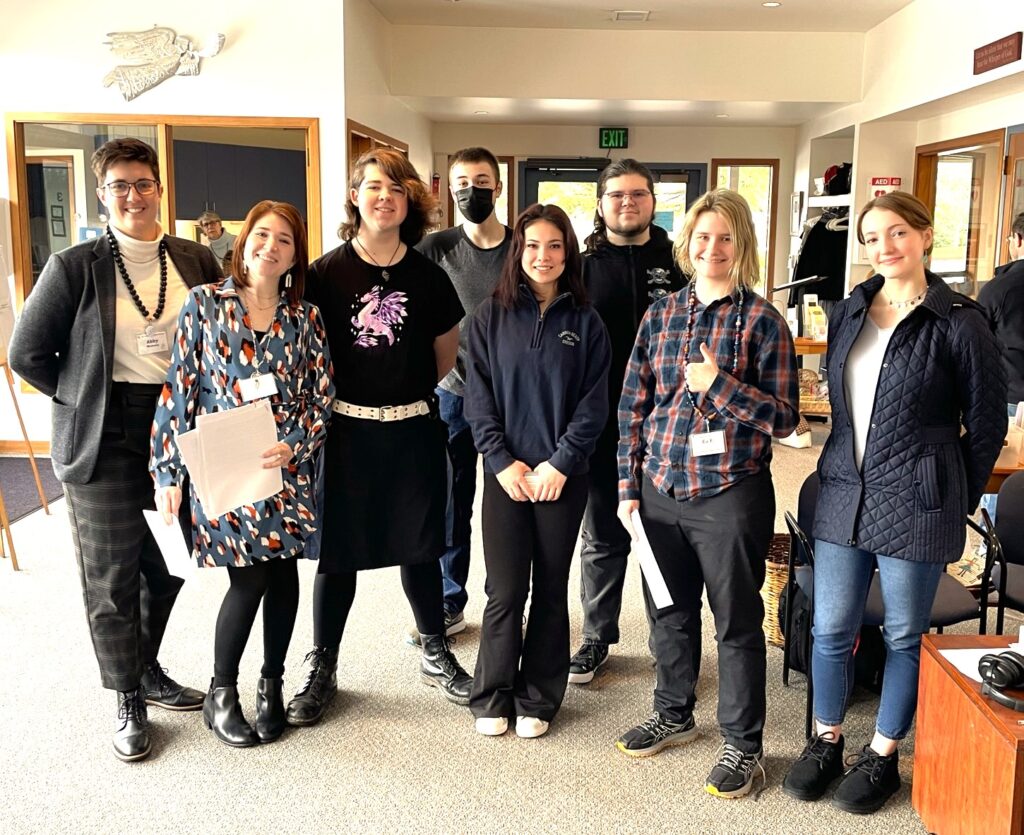 there are not special qualifications for being someone’s neighbor. We are all united in God’s love.
there are not special qualifications for being someone’s neighbor. We are all united in God’s love.
The second big promise we make is to strive for justice and peace among all people and respect the dignity of every human being. What does this mean?
To respect the dignity of every human being, we can start, funny enough, by loving our neighbor. We do not have to agree on everything. We do have to agree that every human being is important. This means that every person should have their needs met and determine their own path in life–and we should be part of making that possible. Every human being deserves the respect that too many of us take for granted.
Now, how do we strive for justice and peace among all people? There are a lot of people out there! This feels impossible. As a senior youth group, we have talked about how we are not called to solve every problem, but that we should be active in our faith. When we recognize that something is wrong or unjust, we have to do something about it. We are called to stand for Christ’s work in all that we do and, importantly, our job is NOT to determine who qualifies for justice and peace.
Some of you out there may be thinking to yourself, ‘what does this have to do with pronouns?’ We’ve been talking about the pronoun project for months now and, for the last few weeks, there have been inserts related to pronouns in the service booklet.
Pronouns are used in everyday speech and writing to take the place of people’s names.
How many times has someone used your name today? How does it feel when you’re called the wrong name? Pronouns are just like names.
We use pronouns a lot without even thinking about it. Asking and using someone’s correct pronouns are two of the most basic ways to show respect.
When people get it right or show that they are trying, it means a lot. If you make a mistake – just apologize and move on – we are all human! With God’s help we can expand our language to grow our community and deepen our faith
Ok but what does this have to do with the Baptismal Covenant? Pronouns are never explicitly mentioned, why should we care?
First, using correct pronouns are part of how we love our neighbor.
Second, using and talking about pronouns in community is how we respect the dignity of every human being.
Third, continuing to learn about and understanding how to use someone’s pronouns correctly is part of how we strive for justice and peace.
It can feel scary to try new things. As a senior youth group, we talked about how hard it can be to be in a situation to correct older adults and authority figures, how this can feel disrespectful. Even bringing up these topics can be hard and intimidating. But our Baptismal Covenant reminds us of our unity in God’s love. The words we use, the way we invite change or invite new neighbors are all part of our promise.
Eco-Social Justice Projects like the Pronoun Project belong in the Episcopal Church because they help highlight opportunities for us to find new ways to live out our Baptismal Covenant. We here at St Gabriel’s are a small community. As a senior youth group, we discuss how our relationships with God are deeply personal but that, in community, we also need to focus on the whole person.
The way I like to think about this is the way I talk to my friends. It’s ok for me to make mistakes because my friends know that I have good intentions and am trying to get it right. It’s not a big thing for them to correct me and move on so I can do better next time. It shows that we all care about each other and our relationship. Our friends are our neighbors, and our neighbors are our friends.
The senior youth group bulletin board has been updated to contain more information about pronouns. When you stop by, please take a sticker to add your pronouns to your nametag. We look forward to getting to know you all a little better.”
